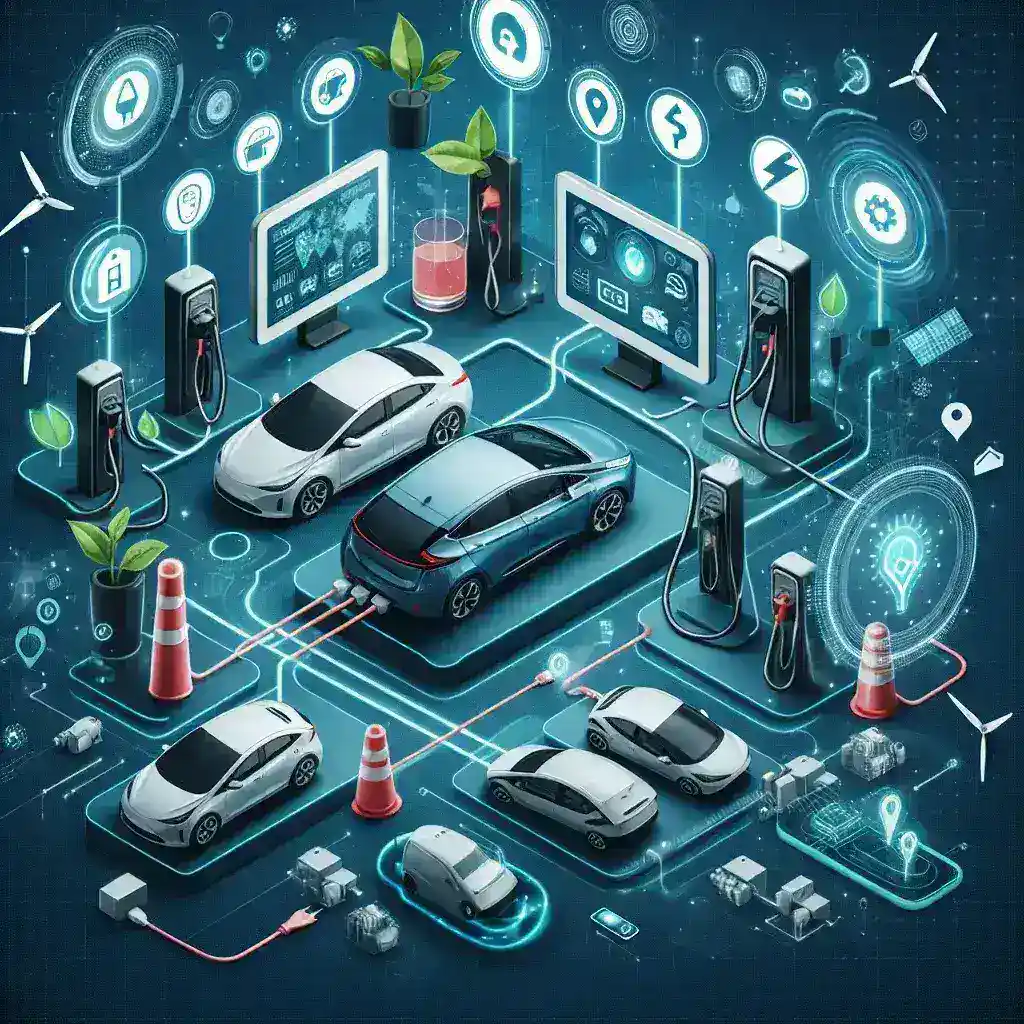
Rivian’s EV Fleet Management Software Updates: A Deep Dive into Enhanced Efficiency and Sustainability
Rivian’s EV Fleet Management Software Updates: Revolutionizing Electric Vehicle Operations
Rivian, a prominent player in the electric vehicle (EV) market, recently unveiled significant software updates to its fleet management system. These updates aren’t just incremental tweaks; they represent a substantial leap forward in optimizing EV fleet performance, enhancing sustainability initiatives, and shaping the future of electric transportation. This in-depth analysis will dissect these updates, exploring their implications for fleet managers, drivers, and the environment.
A Focus on Efficiency: Maximizing Range and Minimizing Downtime
One of the key areas addressed by the updates is maximizing the operational efficiency of EV fleets. This involves several crucial aspects. Firstly, improved battery management algorithms promise to significantly extend the range of Rivian’s EVs, allowing for longer trips and reduced charging stops. This is achieved through sophisticated predictive modeling, incorporating real-time data on driving conditions, terrain, and even driver behavior to optimize energy consumption. The software learns and adapts, constantly fine-tuning its predictions for optimal performance.
Secondly, the updates streamline maintenance scheduling and predictive diagnostics. By analyzing data from various vehicle sensors, the system can anticipate potential issues before they become major problems, minimizing downtime and preventing costly repairs. This proactive approach is essential for maintaining the smooth operation of any fleet, particularly critical in time-sensitive operations like delivery services or emergency response.
Sustainability at the Forefront: Reducing Environmental Impact
Rivian’s commitment to sustainability is deeply embedded in these software updates. The enhanced range optimization, as mentioned above, directly contributes to reduced energy consumption and lower carbon emissions. Moreover, the updates incorporate features designed to encourage eco-friendly driving habits. This includes providing drivers with real-time feedback on their energy usage and offering suggestions for more efficient driving techniques. By incentivizing eco-conscious behavior, Rivian aims to amplify the environmental benefits of its EVs.
The software also integrates with charging infrastructure management systems, optimizing charging schedules to leverage off-peak electricity rates and reduce strain on the power grid. This intelligent approach minimizes the environmental impact associated with EV charging, ensuring that Rivian’s fleet operates with maximum energy efficiency and minimal environmental footprint. This commitment resonates with the growing global focus on sustainable transportation solutions.
Data-Driven Insights: Enhancing Fleet Management Decision-Making
The updated fleet management system provides fleet managers with unprecedented levels of data-driven insights. Through an intuitive dashboard, managers can access comprehensive information on vehicle performance, energy consumption, driver behavior, and maintenance needs. This granular level of data empowers managers to make informed decisions about optimizing routes, scheduling maintenance, and allocating resources. The system’s advanced analytics capabilities allow for the identification of trends and patterns that might otherwise go unnoticed, enabling proactive interventions to prevent potential problems.
For instance, the system might highlight a particular driver exhibiting inefficient driving patterns, leading to targeted training or coaching. Or it might identify a specific route consistently resulting in higher energy consumption, prompting a reevaluation of the route plan. This data-driven approach enhances operational efficiency and allows for continuous improvement in fleet management strategies. It’s a move towards a more proactive and intelligent approach to fleet operations.
Future Implications and Speculation: A Glimpse into the Future of EV Management
Rivian’s software updates are not just about improving current operations; they serve as a glimpse into the future of EV fleet management. The advancements in AI-powered predictive modeling and data analytics lay the foundation for even more sophisticated systems in the years to come. We can anticipate further advancements in areas such as autonomous charging, predictive maintenance, and integrated route optimization, all driven by the ever-increasing power of data and artificial intelligence.
The integration of these systems with other smart city initiatives could also transform urban transportation. Imagine a system where EVs communicate with smart traffic management systems to optimize traffic flow and reduce congestion. This type of interconnectedness is becoming increasingly feasible, and Rivian’s updates represent a significant step toward this interconnected future.
Comparing Rivian’s System to Competitors: A Competitive Landscape
While Rivian is making strides in its fleet management software, it’s important to consider the competitive landscape. Other EV manufacturers and technology companies are also developing sophisticated fleet management solutions. A detailed comparison requires analyzing features like the level of integration with third-party systems, the sophistication of predictive analytics, and the user-friendliness of the interface. Each system has its strengths and weaknesses, catering to different needs and priorities.
However, Rivian’s focus on sustainability and data-driven insights sets it apart. The integration of eco-friendly driving incentives and proactive maintenance scheduling positions Rivian as a leader in this evolving sector. The company’s commitment to continuous improvement and innovation suggests that its fleet management software will remain at the forefront of technological advancements in the industry.
Real-World Examples and Case Studies: Practical Applications of the Updates
While specific case studies related to these recent updates are yet to be widely published, we can extrapolate from Rivian’s previous work and general industry trends. For example, the enhanced range predictions could significantly impact delivery services by allowing for longer delivery routes without the need for frequent charging stops, thus increasing efficiency and reducing operational costs. Similarly, the predictive maintenance feature could prevent costly breakdowns, ensuring minimal disruption to services.
Looking at other EV fleet operators, we see similar benefits from advanced fleet management systems. Companies utilizing similar technologies have reported significant reductions in fuel (or rather, energy) costs, improved driver productivity, and enhanced overall fleet efficiency. These trends suggest that Rivian’s updates will offer similar tangible benefits to its fleet customers.
Addressing Challenges and Potential Limitations: A Balanced Perspective
While the software updates offer many benefits, it’s crucial to acknowledge potential challenges. The reliance on data and connectivity means that system performance is dependent on the availability and reliability of network infrastructure. In areas with poor connectivity, the system’s effectiveness may be compromised. Furthermore, the complexity of the system requires skilled personnel to manage and maintain it effectively. Training and support for fleet managers and drivers will be essential for maximizing the benefits of the updates.
Another challenge lies in data security. The system collects and processes large amounts of sensitive data, necessitating robust security measures to protect against unauthorized access and data breaches. Rivian needs to invest heavily in cybersecurity to safeguard this valuable information and ensure the integrity of its fleet management system. Addressing these challenges proactively will be crucial for the long-term success of the updates.
Conclusion: A Step Towards a Smarter, Greener Future
Rivian’s recent software updates to its EV fleet management system represent a significant advancement in the field. The focus on efficiency, sustainability, and data-driven decision-making positions the company as a leader in the evolving landscape of electric vehicle operations. While challenges remain, the potential benefits are substantial, paving the way for a smarter, greener future for EV fleets worldwide. The continuous evolution of this technology promises to further optimize EV operations and accelerate the transition towards sustainable transportation.
For more information on sustainable transportation initiatives, you can refer to resources like the Environmental Protection Agency (EPA) and the United Nations Framework Convention on Climate Change (UNFCCC).



Leave a Comment